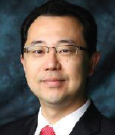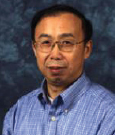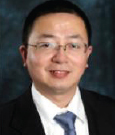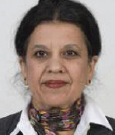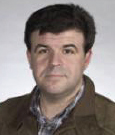Several faculty members at Roswell Park Cancer Institute have been awarded nearly $5 million in grant funding from public and private organizations to further their efforts to find new and better ways to detect and treat cancer and improve patients’ quality of life. The 13 awards, including two for more than $1 million each, will support projects ranging from an investigation of differences among e-cigarette devices to a study assessing the anti-cancer potential of a drug for amyotrophic lateral sclerosis, or Lou Gehrig’s disease.
Maciej Goniewicz, PhD, PharmD, an Assistant Member of the Department of Health Behavior, has been awarded a 3-year, $1.38 million grant from the National Institute on Drug Abuse to lead a multisite clinical research study, collaborating with the University at Buffalo and University of California–San Francisco, to analyze nicotine delivery from novel nontobacco electronic systems, or e-cigarettes. The researchers will look at variations among brands of e-cigarettes and what those differences mean for users, such as how much nicotine is delivered into the bloodstream and how flavorings affect the way smokers puff, as well as the amount of nicotine inhaled. The goal is to propose a standardized testing protocol for these devices that will aid future research and offer consumers a reliable way to compare risks and benefits.
Richard Koya, MD, PhD, an Associate Professor of Oncology in the Center for Immunotherapy and Director of the Vector Development and Production Facility, received a 4-year, $1.35 million award from the National Cancer Institute (NCI) for a clinical study that aims to generate a potent “army” of immune cells from a patient’s own blood to specifically and efficiently fight cancer by utilizing innovative gene-therapy techniques, such as TGF-beta blockade in T-cell-receptor-engineered immunotherapy, an approach developed in his lab. This work may establish a new treatment paradigm based on immune-cell therapy for eradicating melanoma, sarcoma and ovarian cancer cells, and takes advantage of several state-of-the-art resources within RPCI’s Center for Immunotherapy.
Shahriar Koochekpour, MD, PhD, a Professor of Oncology in the Departments of Cancer Genetics, Medicine, and Urology, received a 2-year, $406,247 grant from the NCI for an investigation into the potential for treating prostate cancer with a drug that’s prescribed for amyotrophic lateral sclerosis. Dr. Koochekpour will evaluate the therapeutic efficacy of the U.S. Food and Drug Administration-approved oral drug riluzole and its association with fatty-acid synthase, a key enzyme that’s overexpressed in prostate cancer cells.
Fengzhi Li, PhD, an Associate Professor of Oncology in the Department of Pharmacology and Therapeutics, received a 2-year, $406,247 grant from the NCI for his study of a new anticancer agent, FL118, against pancreatic cancer. Survival rates for pancreatic cancer remain poor due to the cancer’s inherent resistance to existing chemotherapy and radiation treatments. FL118 is designed to overcome multiple common mechanisms of treatment resistance, including increased expression of cancer-associated antiapoptotic proteins and loss of functional p53.
Jianmin Zhang, PhD, an Assistant Professor in the Department of Genetics, received a 2-year, $406,247 grant from the NCI for a project that will compare how Hippo signaling pathway components are expressed in African-American and European-American breast cancer patients. This translational approach will help to identify women at high risk for aggressive breast cancer toward the goal of eliminating breast cancer racial disparities.
Hans Minderman, PhD, an Assistant Professor of Oncology in the Department of Experimental Therapeutics and Assistant Director of the Flow and Image Cytometry Facility, received a 1-year, $399,500 shared-instrument grant from the NIH for the purchase of an imaging flow cytometer. RPCI’s Flow and Image Facility is recognized as a leader in applications of imaging flow cytometry, and the implementation of this technology at Roswell Park has increased demand by RPCI teams and researchers for this cutting-edge analysis. The instrument will allow the facility to meet increased demand for flow-cytometry analysis.
Scott Abrams, PhD, a Professor of Oncology in the Department of Immunology, received a 2-year, $125,935 research supplement to promote diversity in health-related research from the NCI. This grant supplements his ongoing R01 project, which explores IRF-8 as a negative regulator of CD11b+Gr-1+ myeloid production function. This new award supports the work of doctoral student Danielle Twum in Dr. Abrams’ laboratory. The research project continues to focus on the broad questions of how cancer corrupts host-defense mechanisms, a process ordinarily critical in the fight against these diseases. The work aims to find new ways to track or treat cancer patients in whom tumor-induced immune defects are thought to play a role in the disease process.
Yasmin Thanavala, PhD, a Professor and Member of the Department of Immunology, received a 1-year, $108,500 award from the Flight Attendant Medical Research Institute Inc. (FAMRI) to explore how second-hand tobacco smoke contributes to immune suppression and chronic inflammation, both of which lead to bacterial and viral respiratory infections. These infections further increase inflammation, contributing to a vicious cycle. Dr. Thanavala hopes to develop novel therapies to restore normal immune function and break the cycle. The mission of FAMRI is to sponsor scientific and medical research for the early detection and cure of diseases and medical conditions caused from exposure to tobacco smoke.
Sergei Kurenov, MS, Director of Surgical Simulation in the Department of Surgical Oncology, received a four-year, $69,010 subcontract award from the University of Florida (UF), part of a larger R01 award to UF from the National Institute of Biomedical Imaging and Bioengineering. Dr. Kurenov will help develop software for simulation-based virtual-reality modules used to train physicians in laparoscopic surgery and assess their expertise.
Denise Rokitka, MD, an Assistant Professor in the Department of Pediatric Oncology, received a Hyundai Hope Grant, a 2-year, $250,000 award from the Kaleida/Hyundai Hope Foundation, to explore executive functioning, such as reasoning, problem-solving, organization, planning and behavior control among young adult survivors of childhood and adolescent cancer and how these factors relate to quality of life and depression. Information learned from this study will help identify programs to benefit long-term survivors.
Mikhail Nikiforov, PhD, a Professor of Oncology in the Department of Cell Stress Biology, received a 1-year, $50,000 grant from the Roswell Park Alliance Foundation for an investigation that targets proteins important for cancer cell metabolism (guanylate metabolism) as a way to suppress melanoma metastases, ultimately resulting in the generation of novel anti-melanoma agents.
Nuo Yang, PhD, a Postdoctoral Research Affiliate in the Department of Cancer Genetics, received a 3-month, $3,000 grant from the American Brain Tumor Association for an investigation that aims to identify the specific T-cell receptor that plays a key role in killing glioma tumor cells, and to compare important marker changes following treatment with survivin vaccine therapy, contributing to the successful application of this cancer vaccine in glioma patients.
Theresa Hahn, PhD, an Associate Professor of Oncology in the Departments of Medicine and Epidemiology, received a 1-year, $27,329 subcontract award from Dana-Farber Cancer Institute in Boston, part of a larger grant to Dana-Farber from the NCI to assess the financial impact, including employment, benefits and direct costs, to patients undergoing a blood or marrow transplant. ■


